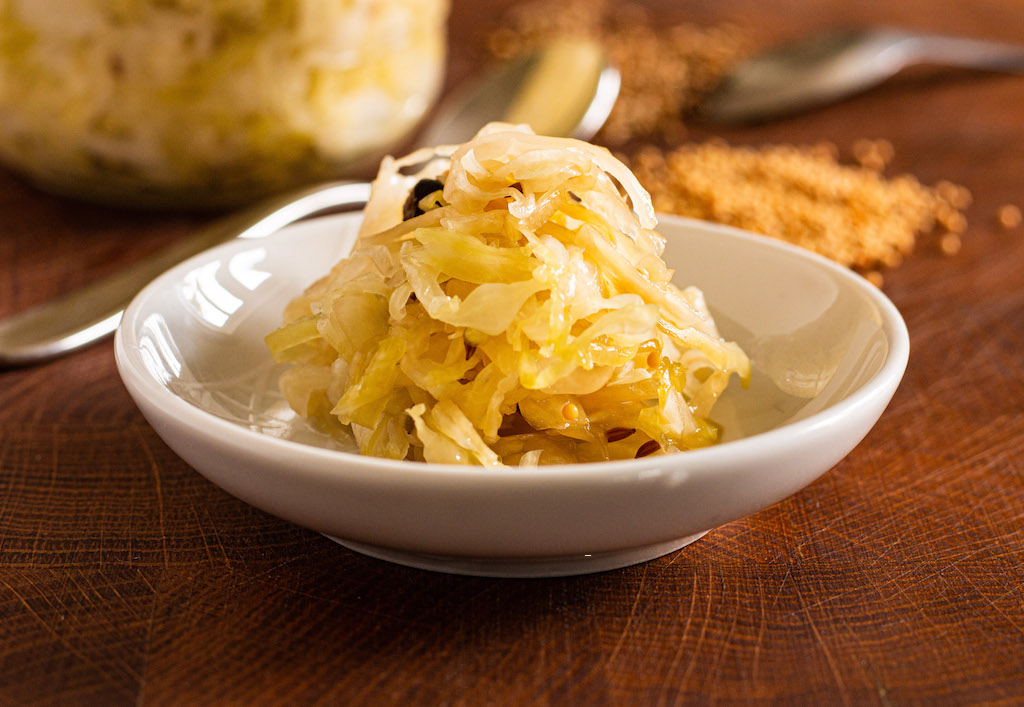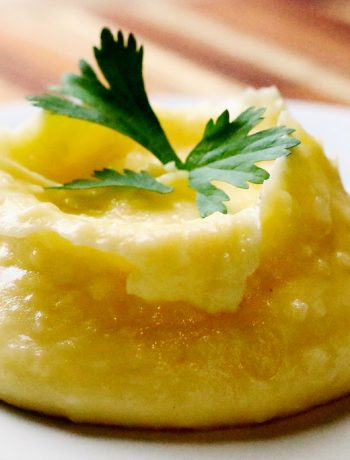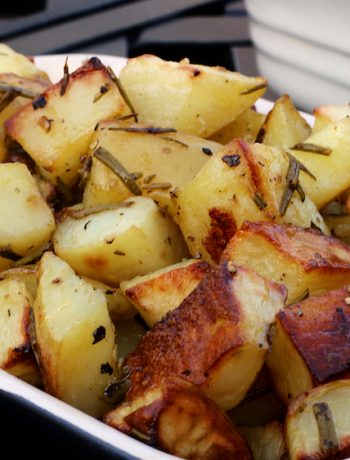Anyone who has the faintest understanding of where foods come from would understand that sauerkraut is about a German as my big toe. The imperative to pickle things to preserve them is an extremely old idea and is driven by the ancient nexus of economy, hunger and lack of refrigeration.
The first record of pickled cabbage comes from China in something like 700 years BC. Later, the Romans (who picked literally everything) exported the idea around Europe, which is probably how the method ended up in modern-day Germany. The Romans, however, were quite promiscuous with both their subjugation and their cuisine, so pickled cabbage pops up with various names all over Europe. It just seems that the German name ‘sauerkraut‘ stuck. While there are other European language versions of the name (e.g. ‘choucroute‘ in France; ‘zuurkool‘ in the Netherlands), the English borrows directly from the German.
Sauerkraut
Ingredients
- For the initial fermentation:
- 1 kg white cabbage, finely shredded (use a mandoline if you have one)
- 10 juniper berries
- 1 tsp caraway seeds
- 1 tsp mustard seeds
- 4 tsp sea salt or rock salt, ground (do not use any salt like table salt that incudes an anti caking agent such as sodium ferrocyanide; see notes for calculation)
- 250ml water
- To top (if needed):
- 1 tsp salt (see above) dissolved in 250ml water
Instructions
For the initial fermentation:
Use a non-metallic bowl to mix all the ingredients except the water. Leave it an hour to release water from the cabbage.
Pack all the mixture (plus the released water) into sterilised mason jars (these have a separate lid and screw ring, e.g. Kilner brand) and place the jars on a tray to catch any efflux. Fill to the neck with water.
Maintain the jars at room temperature for an hour and prepare for them to froth over.
To top (if needed):
Use the saline water to top the jars to the neck again.
To ferment:
Leave the jars on the trays at room temperature for about a week. Check them for tartness, and leave longer if desired.
Once the sauerkraut is done, screw down the lids and store the jars in the fridge.
Notes
2% salt = 1kg cabbage + 20g salt (0.02g salt per 1g cabbage)






No Comments